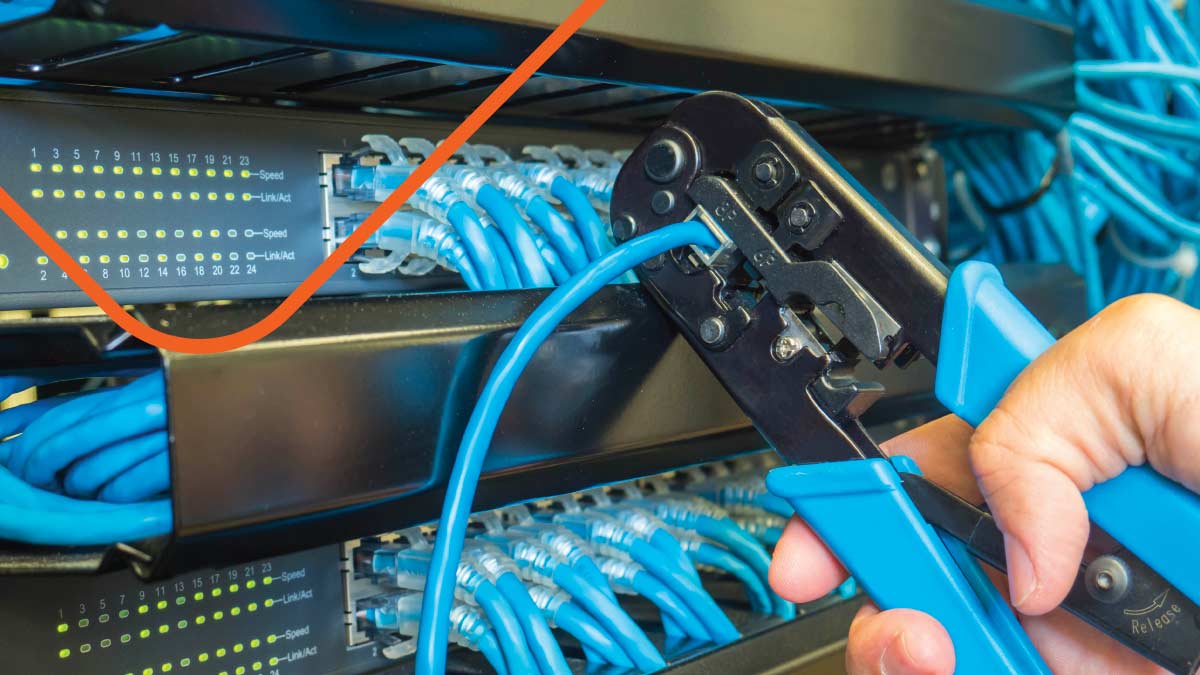IT technicians play a critical role in ensuring the smooth operation of technology-driven organizations. From troubleshooting technical issues to providing ongoing support, these professionals are integral to the success of businesses across various industries. To excel in their field, IT technicians need a combination of technical expertise, problem-solving skills, and effective communication abilities. This article explores the key qualities that equip IT technicians for excellence in the field.
Understanding the role of IT technicians


Before exploring the skills and certifications required for IT technicians, it is essential to understand the breadth of their role. IT technicians are responsible for maintaining, troubleshooting, and repairing computer systems, networks, and other technology infrastructure. They keep all hardware and software components functioning optimally to support the organization’s overall operations. Additionally, IT technicians often provide technical support to end-users, addressing their queries, resolving technical issues, and offering guidance on technology-related matters.
With the increasing reliance on technology in today’s world, the role of IT technicians has become even more critical. They are the unsung heroes behind the scenes, working tirelessly to keep the organization’s technology ecosystem running smoothly. IT technicians play a vital role in ensuring that employees in all types of businesses can work efficiently and effectively.
Key responsibilities of IT technicians
IT technicians have various responsibilities that maintain the smooth functioning of an organization’s technology ecosystem. Some of their key tasks include:
- Installing and configuring hardware and software
- Diagnosing and resolving technical issues
- Performing routine maintenance and system updates
- Ensuring data security and network integrity
- Providing technical support to end-users
These responsibilities require IT technicians to possess a wide range of technical skills and a comprehensive understanding of computer systems and networks. However, their role goes beyond just technical expertise. IT technicians also need to have excellent problem-solving abilities, strong communication skills, and a detail-oriented mindset.
Essential skills for IT technicians
Alongside technical expertise, several essential skills contribute to the success of IT technicians. These skills not only aid in effectively resolving technical challenges but also enhance collaboration and communication. Some crucial skills for IT technicians include:
- Strong problem-solving abilities to identify and address technical issues efficiently
- Excellent communication skills with end-users and colleagues
- Detail-oriented mindset to diagnose and resolve problems accurately
- Ability to work under pressure and meet tight deadlines
- Adaptability to rapidly evolving technology landscapes
By developing these skills, IT technicians can improve their efficiency and contribute significantly to their organization’s success. Moreover, these skills also enable IT technicians to adapt to the ever-changing technology landscape, where new challenges and opportunities arise regularly.
The role of IT technicians is multifaceted and crucial in today’s technology-driven world. They are the backbone of any organization’s technology infrastructure, keeping everything running smoothly and efficiently. With their technical expertise, problem-solving abilities, and strong communication skills, IT technicians play a vital role in supporting the organization’s overall operations and contributing to its success.
The importance of continuous training and development
IT technicians must remain updated with the latest developments and trends in their field. Continuous training and development play a crucial role in equipping IT technicians with the knowledge and skills required to excel in their profession.
In addition to staying updated with technological advancements and enhancing problem-solving skills, continuous training and development also contribute to fostering a culture of innovation within IT teams. By encouraging ongoing learning and skill development, organizations can create an environment where IT technicians feel empowered to experiment with new ideas, explore unconventional solutions, and drive technological advancements.
Staying updated with technological advancements
The world of technology is constantly evolving, and IT technicians need to keep abreast of the latest advancements. This includes attending industry conferences, participating in webinars, and engaging in professional networking. By staying updated, IT technicians can gain insights into emerging technologies, learn best practices, and identify innovative solutions to complex technical challenges.
Moreover, continuous training and development allow IT technicians to adapt to changing industry trends and customer demands. By investing in upskilling programs and certifications, IT professionals can broaden their expertise and stay competitive in a dynamic market. This adaptability not only benefits individual technicians in their career growth but also enhances the overall agility and resilience of the IT department.
Enhancing problem-solving skills
Effective problem-solving lies at the core of an IT technician’s role. By actively engaging in problem-solving training programs, such as troubleshooting simulations and workshops, IT technicians can enhance their ability to analyze issues and devise efficient solutions. This continuous development of problem-solving skills ensures that IT technicians can address technical problems swiftly and minimize downtime.
Furthermore, continuous problem-solving training instills a proactive mindset among IT technicians, encouraging them to anticipate potential issues before they escalate. By honing their critical thinking and analytical abilities, IT professionals can resolve immediate technical challenges and implement preventive measures to mitigate future risks and enhance system reliability.
A variety of tools and technologies assist IT technicians in efficiently performing their tasks. These tools can be categorized into hardware and software, each serving a specific purpose.
When it comes to hardware tools, IT technicians rely on a wide range of equipment to perform physical repairs and maintenance. These tools keep computer systems and networks functioning optimally. Some commonly used hardware tools by IT technicians include:
- Screwdrivers and pliers for hardware assembly and disassembly: These trusty companions allow technicians to open computer cases, replace components, and secure connections easily.
- Multimeters for measuring electrical parameters: With the help of multimeters, IT technicians can accurately measure voltage, current, and resistance, enabling them to troubleshoot electrical issues effectively.
- Cable testers for diagnosing network connectivity issues: These invaluable tools help technicians identify faulty cables, locate connectivity problems, and ensure smooth data transmission across networks.
- Diagnostic cards for troubleshooting hardware problems: Diagnostic cards provide IT technicians with detailed information about hardware malfunctions, allowing them to pinpoint the root cause of issues and implement appropriate solutions.
Equipped with these hardware tools, IT technicians can identify and rectify hardware-related issues efficiently, keeping computer systems running smoothly.
While hardware tools are crucial, software tools also play a significant role in the daily work of IT technicians. These software tools offer a range of features that aid in diagnosing and resolving software-related problems. Some commonly used software tools by IT technicians include:
- Remote desktop software for accessing and troubleshooting systems remotely: This software enables technicians to remotely connect to computers and servers, allowing them to troubleshoot issues without being physically present.
- Antivirus software for detecting and removing malware: IT technicians rely on robust antivirus software to protect computer systems from malicious software, keeping networks secure and data safe.
- System monitoring tools for proactive monitoring and management: These tools provide real-time insights into computer system performance, allowing technicians to identify potential issues before they escalate and impact productivity.
- Software deployment tools for streamlined software installations and updates: IT technicians use software deployment tools to efficiently install and update software across multiple systems, saving time and effort.
With the help of these software tools, IT technicians can streamline their workflows, enhance their ability to manage software-related issues efficiently, and keep computer systems running smoothly.
The combination of hardware and software tools empowers IT technicians to perform their tasks effectively and efficiently. Whether diagnosing hardware problems or resolving software issues, these tools are essential in the smooth operation of computer systems and networks.
Developing soft skills for IT technicians

While technical skills are essential for IT technicians, soft skills are equally important for effective collaboration and communication within the workplace.
Soft skills encompass a wide range of interpersonal abilities that enable IT technicians to work harmoniously with others, both within and outside their department. These skills are crucial for building strong relationships, resolving conflicts, and fostering a positive work environment.
Communication skills for IT technicians
Clear and concise communication is critical for IT technicians when interacting with end-users and colleagues. Strong communication skills enable IT technicians to understand users’ concerns, explain technical concepts in a straightforward manner, and keep all parties on the same page. Additionally, active listening skills help IT technicians understand the root cause of an issue, leading to efficient problem resolution.
Effective communication also involves the ability to tailor messages to different audiences, whether simplifying complex technical jargon for non-technical staff or providing detailed explanations to fellow IT professionals. By honing their communication skills, IT technicians can build trust, prevent misunderstandings, and enhance overall productivity.
Teamwork and collaboration in IT
IT technicians often collaborate with colleagues from various departments to ensure the smooth functioning of technology within an organization. Strong teamwork and collaboration skills facilitate effective coordination, knowledge sharing, and problem-solving. By fostering a collaborative environment, IT technicians can enhance operational efficiency, streamline processes, and optimize the organization’s technology infrastructure.
Collaboration goes beyond just working together on projects; it involves respecting diverse perspectives, leveraging individual strengths, and collectively achieving common goals. IT technicians who excel in teamwork not only contribute to successful project outcomes but also cultivate a supportive and inclusive work culture that inspires innovation and continuous improvement.
The role of certifications in IT excellence
Professional certifications are valuable assets for IT technicians as they validate their technical skills and knowledge. Certifications provide a standardized measure of expertise in specific areas of IT and offer several benefits in terms of career progression and professional growth.
Popular certifications for IT technicians
Several certifications are highly regarded in the IT industry and can significantly enhance an IT technician’s career prospects. Some popular certifications for IT technicians include:
- CompTIA A+ for foundational knowledge in hardware and software technologies
- Microsoft Certified Solutions Associate (MCSA) for expertise in Microsoft technologies
- Cisco Certified Network Associate (CCNA) for proficiency in networking concepts
- ITIL Foundation for understanding IT service management best practices
These certifications validate technical proficiency and demonstrate a commitment to professional growth, making IT technicians more desirable candidates for employment opportunities.
The impact of certifications on career progression
Certifications can significantly accelerate an IT technician’s career progression. They enhance credibility, open up new job opportunities, and increase earning potential. In addition, certifications provide access to a supportive professional network and ongoing learning resources, keeping IT technicians updated with the latest trends and developments in their field.
Conclusion
Equipping IT technicians for excellence in the field requires a combination of technical expertise, essential skills, and continuous professional development. By embracing opportunities for training, staying updated with the latest technology trends, using appropriate tools and technologies, and honing their soft skills, IT technicians can excel in their profession and contribute significantly to the success of their organizations.








